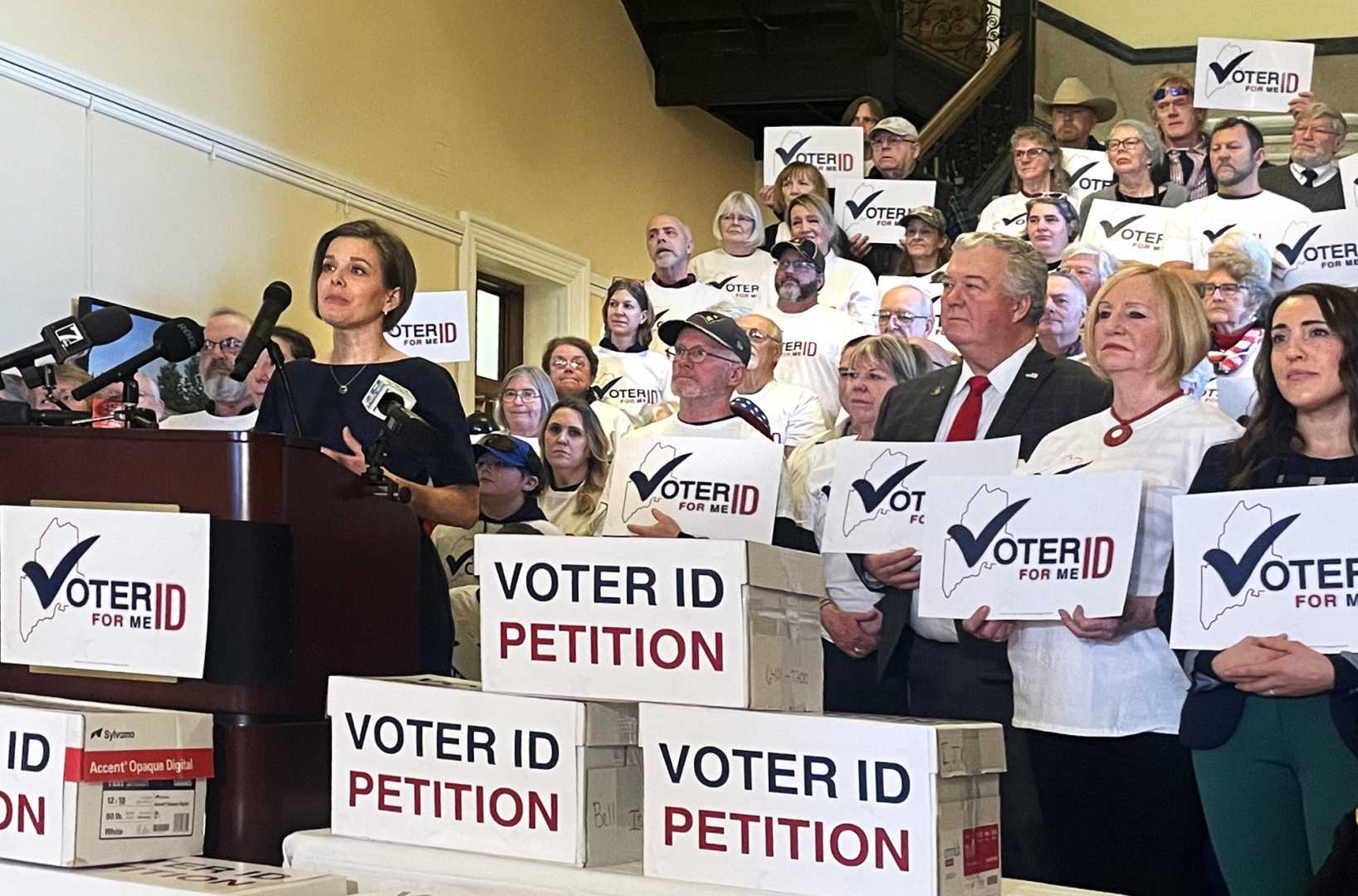Politics
Maine Voter ID Proposal Faces Heavy Opposition at Public Hearing

AUGUSTA, Maine — Lawmakers listened to hours of testimony on Friday from opponents of a proposed voter ID law designed to be included on the November ballot. The proposed measures, backed by Rep. Laurel Libby, R-Auburn, mandate photo identification before voting and impose stricter rules on absentee voting.
The proposal aims to introduce significant reforms, including limiting the number of ballot drop boxes and establishing other new voting requirements seen as complicated by election officials. Critics argue that these restrictions could negatively impact vulnerable groups, including the elderly, those with disabilities, and busy parents.
Libby, defending the proposal, stated, “This isn’t the public hearing that matters. Over 171,000 Maine people testified at that public hearing. Their signatures are their testimony.” However, opponents have criticized both the signature collection process and the overwhelming push for the law amidst significant public dissent.
Sen. Craig Hickman, D-Winthrop, chair of the Veterans and Legal Affairs Committee, questioned campaign organizer Alex Titcomb about the clarity of the proposed changes that go beyond voter ID, suggesting there was an attempt to mask broader reforms. Titcomb replied that the proposal is publicly accessible for review.
The campaign receives backing from a $500,000 donation by the Republican State Leadership Committee, fueling the push for a statewide referendum. Critics, including Beth Allen of Mainers for Modern Elections, labeled the bill as an “attack on our secure elections,” stating that it would dismantle established voting methods in Maine.
The proposed law would require voters to show a photo ID when casting a ballot or returning an absentee ballot, with exemptions for religious objections. Acceptable identification includes driver’s licenses, military IDs, and passports but excludes student IDs.
Opposition also focuses on changes to absentee voting, which would stop requests through phone or family, and restrict municipalities to one drop box each for absentee ballots. Secretary of State Shenna Bellows expressed concerns over the bill, noting that Maine has high voter turnout and security already in place.
Opponents highlighted potential disenfranchisement, citing a survey suggesting that one in ten eligible voters lack proper photo IDs. They worry that older adults and disabled persons might struggle to obtain IDs, especially if they cannot travel to the locations offering free photos for ID issuance.
The committee did not reach a decision on the proposal following the extensive hearing, leaving its future uncertain as the November election approaches.












